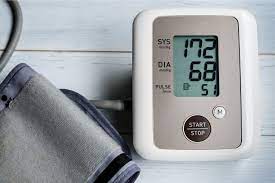Contents
Introduction
Health is a delicate balance, and few parameters are as crucial as blood pressure (BP). Understanding your BP is not just about knowing numbers; it’s about comprehending the nuances of what those numbers signify for your overall health. In this meta blog, we delve into the significance of the BP normal range, exploring its implications, variations, and the importance of maintaining it for a healthier life.
The Basics of Blood Pressure
Blood pressure measures the force exerted by circulating blood against the walls of your arteries. It consists of two numbers: systolic pressure (the pressure when your heart beats) and diastolic pressure (the pressure when your heart rests between beats). The unit of measurement is millimeters of mercury (mmHg). In understanding cardiovascular health, the heart of the matter lies within maintaining a balanced BP normal range.

Understanding the BP Normal Range
Variations in the BP normal range can occur due to factors like age, gender, and lifestyle choices. The universally accepted normal range for blood pressure is typically defined as systolic pressure below 120 mmHg and diastolic pressure below 80 mmHg, expressed as “120/80 mmHg.” However, it’s important to acknowledge the variability influenced by factors like age, gender, and lifestyle. While deviations from this range can signal potential health risks, such as hypertension or hypotension, comprehending the nuances of individual variations is key to effective health management.
Implications of Deviations
Deviation from the normal range of blood pressure can have profound implications for overall health. High blood pressure, or hypertension, places increased strain on the heart and blood vessels, raising the risk of heart disease, stroke, and other cardiovascular complications. Conversely, low blood pressure, known as hypotension, can lead to symptoms such as dizziness, fainting, and in severe cases, shock. Monitoring and managing blood pressure deviations are crucial to mitigate these risks and maintain optimal health.
Variations Across Demographics
Age plays a crucial role in determining what constitutes a healthy blood pressure. While the general guideline of 120/80 mmHg applies to most adults, blood pressure tends to rise with age due to the stiffening of arteries and other physiological changes. Similarly, gender differences exist, with women often exhibiting slightly lower blood pressure than men until menopause, after which their risk increases. Recognizing these demographic nuances is crucial in tailoring healthcare strategies to individuals, emphasizing the importance of personalized approaches in managing blood pressure and promoting overall well-being.
The Role of Lifestyle
Lifestyle factors exert a profound influence on blood pressure. Poor dietary habits, lack of physical activity, smoking, excessive alcohol consumption, and chronic stress can all contribute to hypertension. Conversely, adopting a healthy lifestyle, including a balanced diet, regular exercise, stress management techniques, and limiting alcohol and tobacco intake, can help maintain optimal blood pressure levels.

Monitoring and Management
Regular monitoring of blood pressure is crucial, especially for individuals with risk factors such as obesity, diabetes, or a family history of hypertension. Home blood pressure monitors are readily available and provide a convenient means of tracking BP trends over time. For those diagnosed with hypertension, lifestyle modifications, medication, and regular follow-ups with healthcare providers are essential components of management.
Conclusion
Understanding the normal range of blood pressure is a vital aspect of maintaining good health. While the general guideline of 120/80 mmHg serves as a reference point, it’s essential to recognize that individual variations exist based on factors like age, gender, and lifestyle. By staying informed about your blood pressure and adopting healthy habits, you can take proactive steps to prevent hypertension and its associated complications, thus promoting a longer, healthier life.
The journey to optimal health begins with understanding and actively managing your blood pressure within the normal range. It’s not just a number on a monitor; it’s a reflection of your overall well-being and a key determinant of your future health outcomes.



